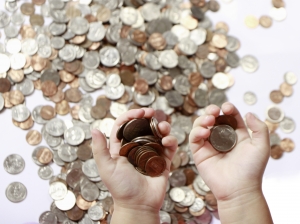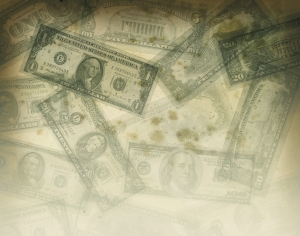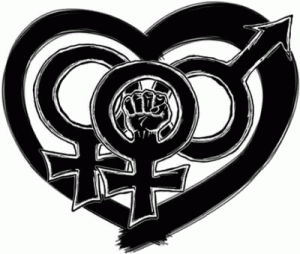Capitalism has a mixed reputation in our society as of late. Some argue it’s the reason why our society is degrading into a cyst pool of moral decay being led by the love of wealth, while others paint capitalism as a beacon of hope and salvation, both of which have legitimate arguments that present valid points about society and the economy—which then makes it even harder to tell who is right. But we should be able to criticize a free market economy without the fear of being labeled a communist/socialist/fascist/dictator/hater-of-all-things-free-though-really-bought. While establishing the world as we know it, capitalism hasn’t always been the greatest of systems.
Just look at its history: the exploitation of child labor, as well as cheap labor through disenfranchised groups like immigrants, workers in third-world countries, along with war profiteering so a few industrialized countries can enjoy the fruits of exploiting the resources of other less-well-off countries. And this is to name a few. But again, just as many bad things one can present about capitalism, just as many good things can be said as well. And no one can really dispute such as claim. The technology we use in order to be as connected as we are today is all because of capitalism. It broke down the walls of hierarchal structures, and allowed for individual social mobility within the system so that good ideas could flourish and produce great products.
And so the argument, for the most part, has become circular. Capitalism has produced great things for many people, but at the price of exploiting many more people. But as long as power retains its desire for greed, then capitalism will prevail. The frustration comes when things like Citizens United, massive bailouts for big corporations, and general malfeasance of the whole capitalism thing—which, as we’ve seen, produces disaffected people to join together in protests like Occupy Wall Street and Arab Spring (though the latter being much more complicated than a group of people disliking capitalism).
But perhaps the solution is also the problem. Perhaps capitalism is the only way to beat capitalism. The most perplexing thing about capitalism is that essentially it leaves the consumer, i.e. the public, with all the power. Everything that you decide to buy, right down to those Twinkies, is a political decision at its core, since invariably it will go and help one company while hurting another. Well, perhaps if we use that buying power to invest and buy companies that use ethical and moral methods in making their products without exploiting either human or natural resources, then we can create a better system, one that works without all the corruptness.
 The problems with such a system, though, are plenty. For the most part, companies keep their practices and methods relatively secret for the very reason that if people knew what it took to make what they were buying then they’d feel so horrible and abject for doing so that they’d never buy another product ever again. And so it works that people are relatively ignorant about what they’re buying, and works further that people, on a general level, are passive and sedentary, willing to accept a nice lie over a gruesome reality.
The problems with such a system, though, are plenty. For the most part, companies keep their practices and methods relatively secret for the very reason that if people knew what it took to make what they were buying then they’d feel so horrible and abject for doing so that they’d never buy another product ever again. And so it works that people are relatively ignorant about what they’re buying, and works further that people, on a general level, are passive and sedentary, willing to accept a nice lie over a gruesome reality.
So, in order for such an ethical capitalistic system to work, then people would have to become more informed. But to become informed requires research, and much, if not all, of the research out there as of right now is tainted in some fashion — tilted towards favoring, on a general level, those with all the power rather than those without. And companies openly buy research that doesn’t support their products and shut them down, while erecting massive campaigns of research and information that supports their products and company, though at the same time dismantling anything close to an impartial flow of information.
This would require some sort of government/state interference. And while that might sound like a dirty word, even like socialism, sometimes a government is needed to ensure that the public’s interest is upheld. But this is the same government that passed legislation to repeal the Glass-Steagall Act, enforce the Citizens United ruling, along with massive tax cuts for the wealthiest members of society, while gutting public education, funding for state universities, and any sort of programs that allow people to access information easier. Along with the revolving door between businesses and governments, perhaps the government isn’t the most impartial judge that should be entrusted with this task of regulation.
Then who does that leave us with? The public is no good because the private and public sector is no good, and so everyone, by comparison, is no good, thus leaving us with a system that is absolutely no good. But then again, maybe capitalism is the natural order of things, the necessary step in order to rid the planet of human beings, and allow for evolution to finally push forward to create a life form that isn’t so destructive.





